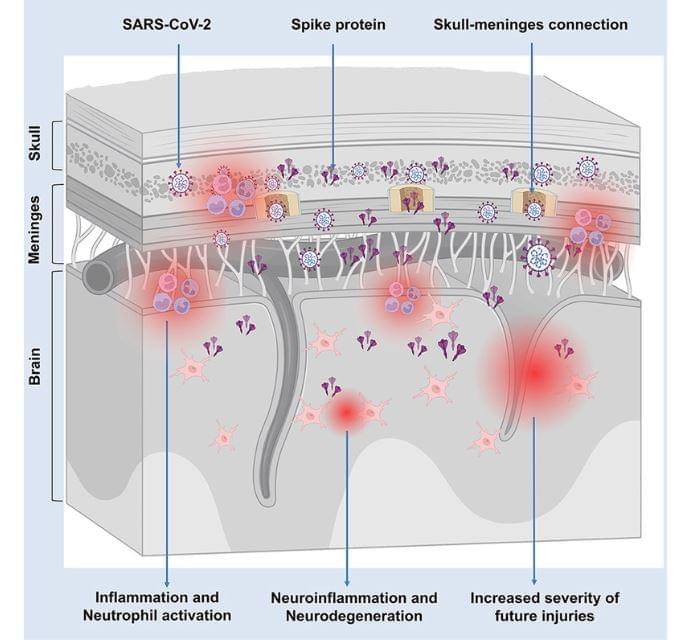Researchers from Helmholtz Munich and Ludwig-Maximilians-Universität (LMU) have identified a mechanism that may explain the neurological symptoms of long COVID.
The study shows that the SARS-CoV-2 spike protein remains in the brain’s protective layers, the meninges, and the skull’s bone marrow for up to four years after infection. This persistent presence of the spike protein could trigger chronic inflammation in affected individuals and increase the risk of neurodegenerative diseases.
The team, led by Prof. Ali Ertürk, Director at the Institute for Intelligent Biotechnologies at Helmholtz Munich, also found that mRNA COVID-19 vaccines significantly reduce the accumulation of the spike protein in the brain. However, the persistence of spike protein after infection in the skull and meninges offers a target for new therapeutic strategies.










Leave a reply